Is Honey Vegan? These 18 Vegan Honey Alternatives Make The Question Moot.
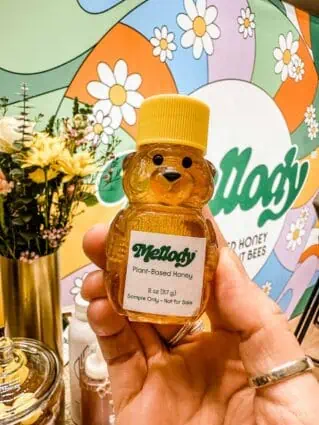
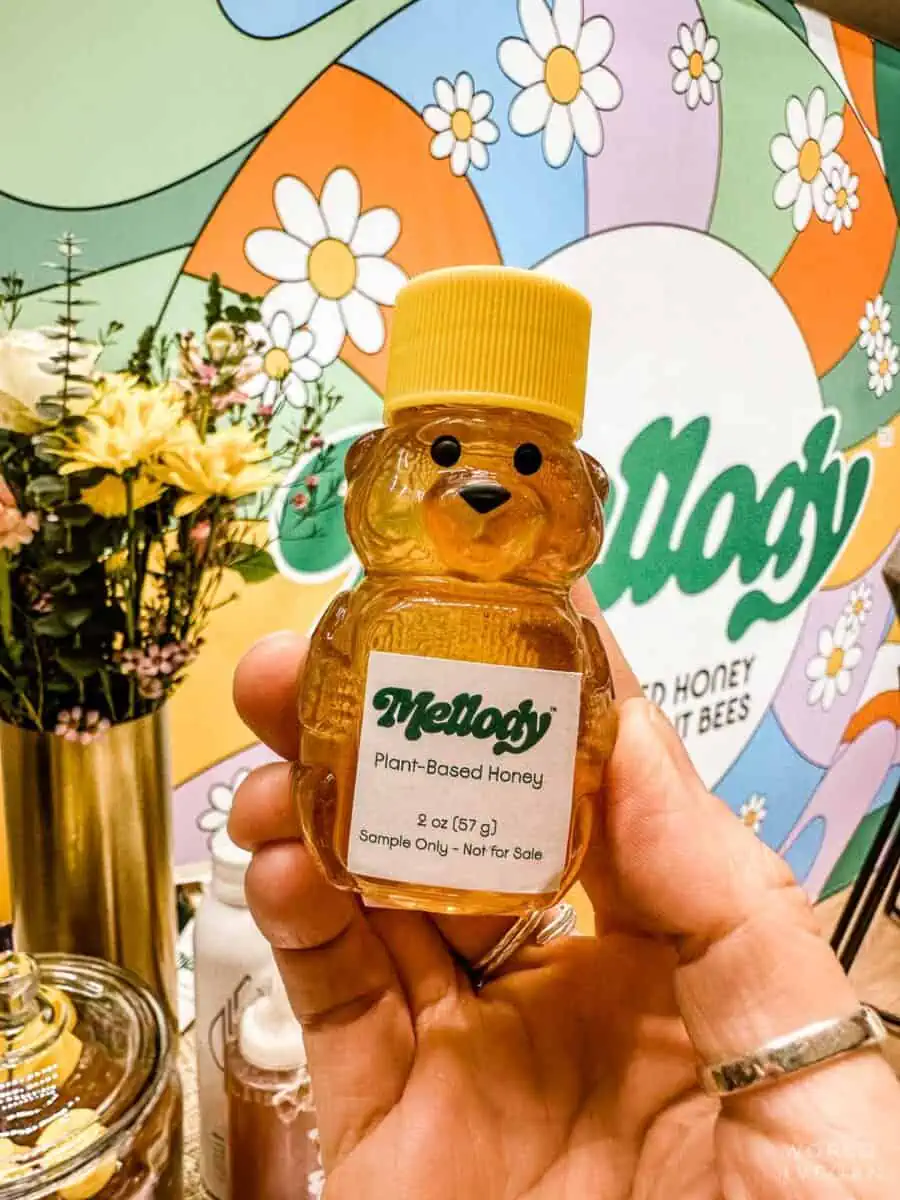
Most issues surrounding vegan living are pretty straightforward. Dairy clearly comes from a cow, eggs come from chickens, and it should go without saying that the animals themselves are strictly off the table. But honey remains a sore spot for many, with confusion lingering over whether it is or isn’t vegan.
One of the most common questions we hear is: Is honey vegan? Let’s set the record straight by focusing on the facts—and also talk about all the fantastic vegan honey options that exist today.
Not only will this article clear up any confusion about the vegan status of honey, but you’ll also find a lineup of fantastic vegan honey alternatives. And don’t miss the easy apple honey recipe at the bottom!
Table of Contents
- Is Honey Vegan?
- Do The Bees Suffer for Honey?
- Issues With Honey (And Is It Cruel to Harvest Honey?)
- The Best Vegan Honey Alternatives
- Store-Bought Vegan Honey Alternatives
- Isn’t Honey A Healthy Superfood, Though? I Want Those Health Benefits!
- Ways to Help Save The Honeybees
- Make Your Own Vegan Honey From Scratch
- Could Avoiding Honey Be Doing More Harm Than Good?
- Do Some Vegans Eat Honey?
- There Is No One “Right” Approach to Honey
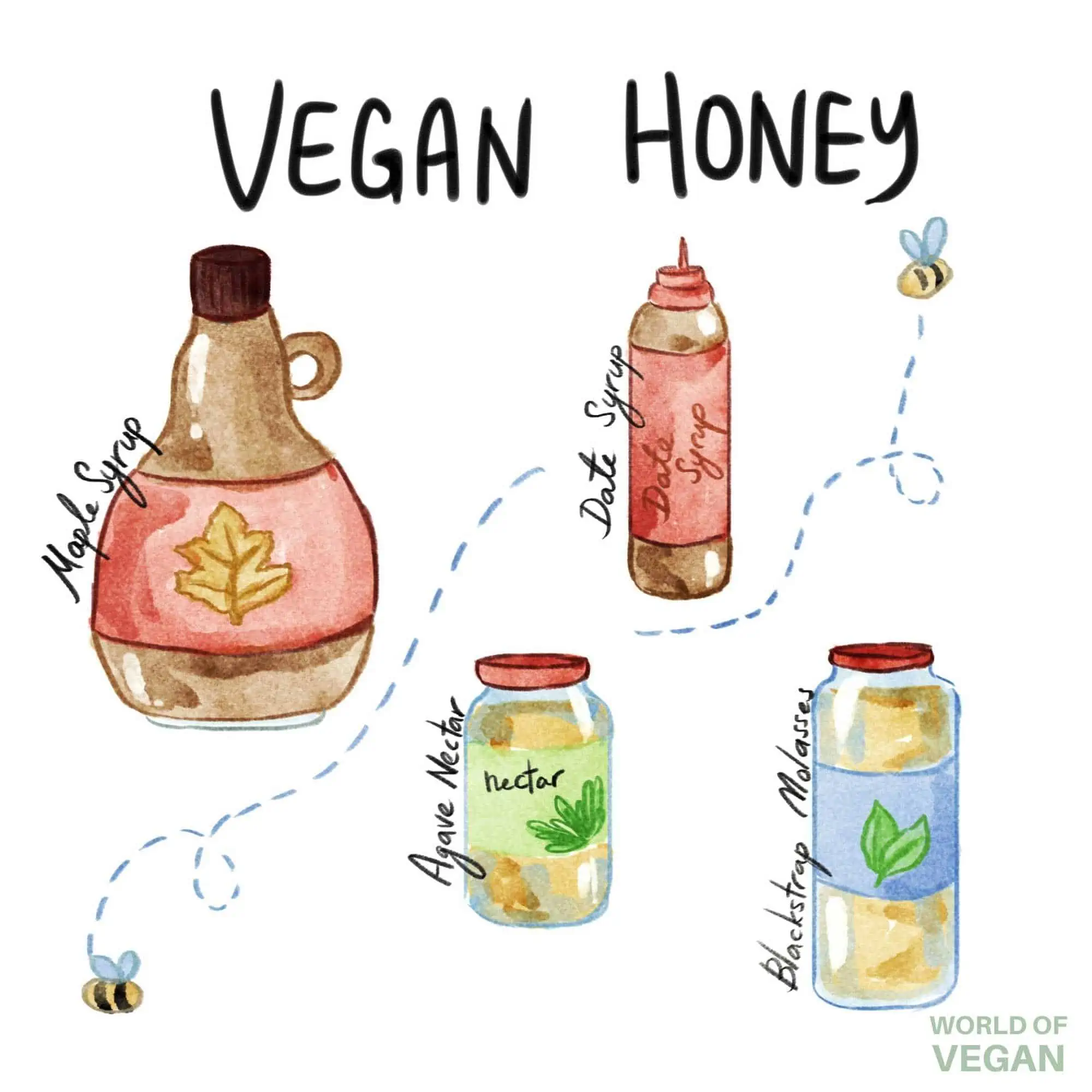
Is Honey Vegan?
In a nutshell, veganism is a way of living meant to minimize animal exploitation, cruelty, and death. By refusing to support a broken system that treats lives like commodities, plant-based alternatives are used in place of all animals and animal products.
For many, veganism is more than just a diet. It’s a lifestyle that touches every facet of daily routine—from the clothing you buy (leather, wool, and silk are common offenders) to the makeup you use (animal testing is still a huge problem), and beyond.
Definition of Vegan
The technical definition of vegan is:
veg·an /ˈvēɡən/
noun
“a person who does not eat any food derived from animals and who typically does not use other animal products.”
By that definition, honey, a product that is made by bees for bees, is not vegan.
However, if vegan living is an ethical choice to reduce suffering and there is an animal product that doesn’t involve any suffering (lab grown “clean meat,” for example), is that product vegan? Some will say yes, and others will say no. There is no right or wrong answer to these questions. Ultimately we must each come to our own personal conclusions about what we will and won’t eat, and what we believe qualifies as vegan.
The next important question is: do bees suffer when honey is harvested? The answer to this question is a point of controversy, as many beekeepers firmly believe that their bees are not harmed. Then again, many dairy and meat farmers believe their animals are leading happy lives, so we need to take everything with a grain of salt, right?
Do The Bees Suffer for Honey?
Insects don’t get the same appreciation as more cute and cuddly animals, like dogs and cats, but they are still sentient beings nonetheless. Bees have a centralized nervous system, can communicate, have developed complex a division of the labor within hives, and are incredibly intelligent.
Bee brains may be about size of grass seeds, but studies have shown that they’re capable of learning from one another and even solving math problems! If that’s not a creature worthy of our respect, I don’t know what is.
But wait! Don’t bees need to produce honey to survive?
You’re absolutely right, but that doesn’t mean it’s ours for the taking. Honey is their fuel that helps them weather the colder days of winter, when no flowers can be found to pollinate. When you take their honey, you’re literally taking food out of their mouths.
Issues With Honey (And Is It Cruel to Harvest Honey?)
While backyard beekeeping is trending and can be done with minimal intrusion and harm, industrial bee farming is notoriously unscrupulous, disregarding the bees’ lives with harmful practices that can destroy hives.
Here are a few things you may not already know about honey production that are worth consideration.
Sneaky swap. Once the honey is harvested, bee keepers may replace it with nutritionally lacking sugar syrups which can kill entire colonies.
Wing clipping. Often, the queen bee will have her wings clipped to prevent swarming to ensure ensuring honey production will maintain steady yields.
Insecticides. We’ve all become wary of pesticides, but with commercial honey there’s another range of chemicals to consider. Insecticides. It’s estimated that around 75 percent of honey worldwide contains insecticides.
Antibiotics. It’s no just farmed animals we are dosing with antibiotics. Beehives are often treated with antibiotics too.
Burning hives. What happens when a disease outbreak occurs? In industrial honey operations, the entire beehives (and the colonies in them) are sometimes burned completely to eradicate the disease.
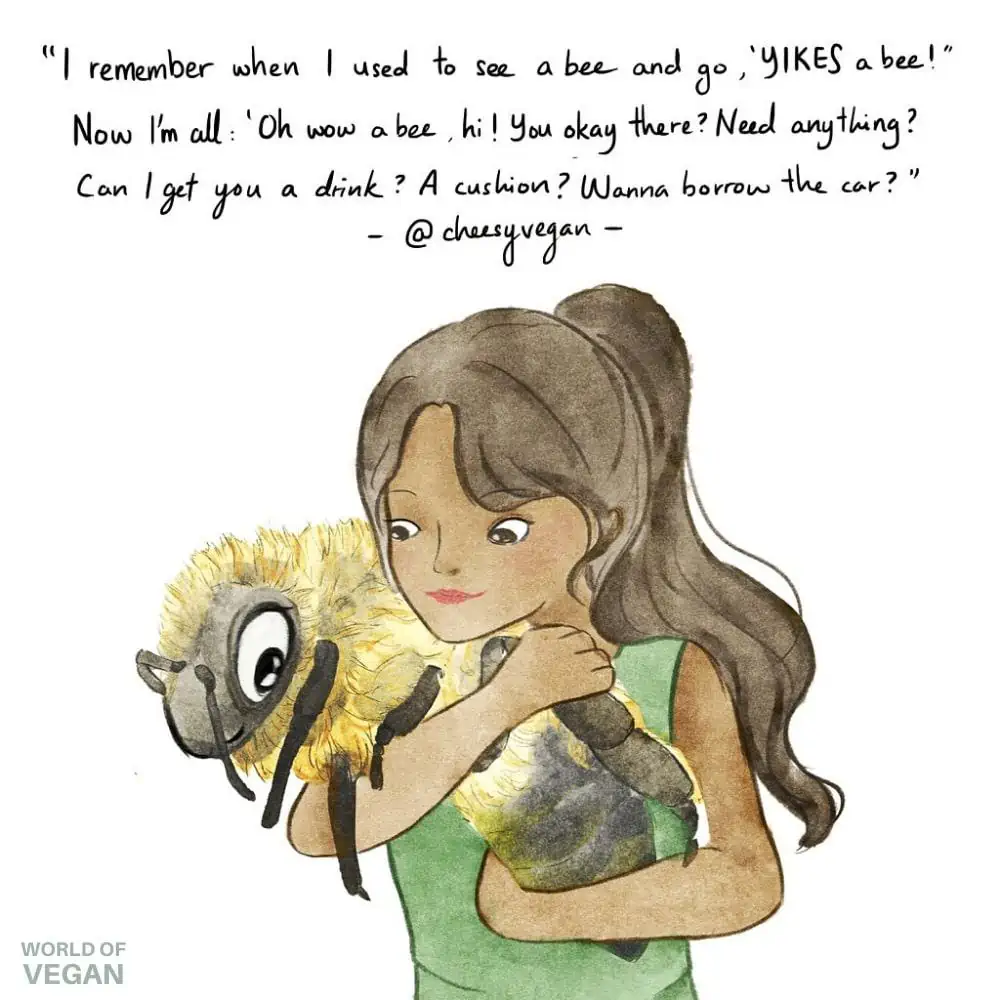
While there are certainly backyard beekeepers who sincerely love their bees, commercial honey harvesting, like all commercial enterprises, is about maximizing profit with little concern about the welfare of the bees.
The Best Vegan Honey Alternatives
There are plenty of natural alternatives to honey that you can find in any grocery store, and probably in your pantry right now, too! Essentially any liquid sweetener is an easy honey substitute, especially when just enjoying it outside of a recipe swirled in tea, drizzled over acai bowls, or used for dipping apples on Rosh Hashanah.
Agave Nectar
Derived from the same plant as tequila but far less potent, this syrup is made from the condensed juice found at the core of the agave cactus. It is available in both light and dark varieties—the dark possesses a more nuanced, complex, and somewhat floral flavor, while the light tends to provide only a clean sweetness. Agave nectar is sweeter and thinner than honey, so bear in mind that baked goods will brown more quickly, and not rise quite as high.

Maple Syrup
There’s nothing quite like real, 100% maple syrup. The flavor is deep, woodsy, and slightly earthy, which makes sense considering that it’s the condense sap from maple trees. It has a distinctive taste that can take your treats in a whole new direction if you’re open to something differently delicious.

Golden Syrup
Especially popular overseas in the UK, golden syrup tastes like caramel without the heavy cream or butter notes. It’s made from cane sugar cooked with citric acid and is perhaps the closest you’ll come to honey for matching the sticky, thick texture. It’s tough to find in some parts of the United States, but you can easily make your own from scratch.

Brown Rice Syrup
Something of an old school throwback to the early days of veganism, brown rice syrup is a natural sweetener that is produced via the fermentation of brown rice. It tastes less sweet than granulated sugar, adding a wholesome complexity to baked goods. The deep flavor of brown rice syrup is best cast in supporting roles, complimenting other aspects of the dish without taking center stage.

Corn Syrup
Light corn syrup that you’ll find at the grocery store isn’t the evil high-fructose corn syrup much reviled in processed foods. This is simply a liquefied cane sugar that’s pure glucose. It’s completely neutral in taste which makes it great for candy making, or when you have very strong competing flavors in the mix.

Store-Bought Vegan Honey Alternatives
When you’re craving the distinctly floral flavor an inimitable viscous texture of genuine honey, you can still get all of that while making compassionate choices! These brands have created cruelty-free bee-free honey options that make vegan living that much sweeter.
- Blenditup Organic Bee Free Honey
- Date Lady Pure Date Syrup
- D’Vash Date Nectar
- Mellody Plant-Based Honey
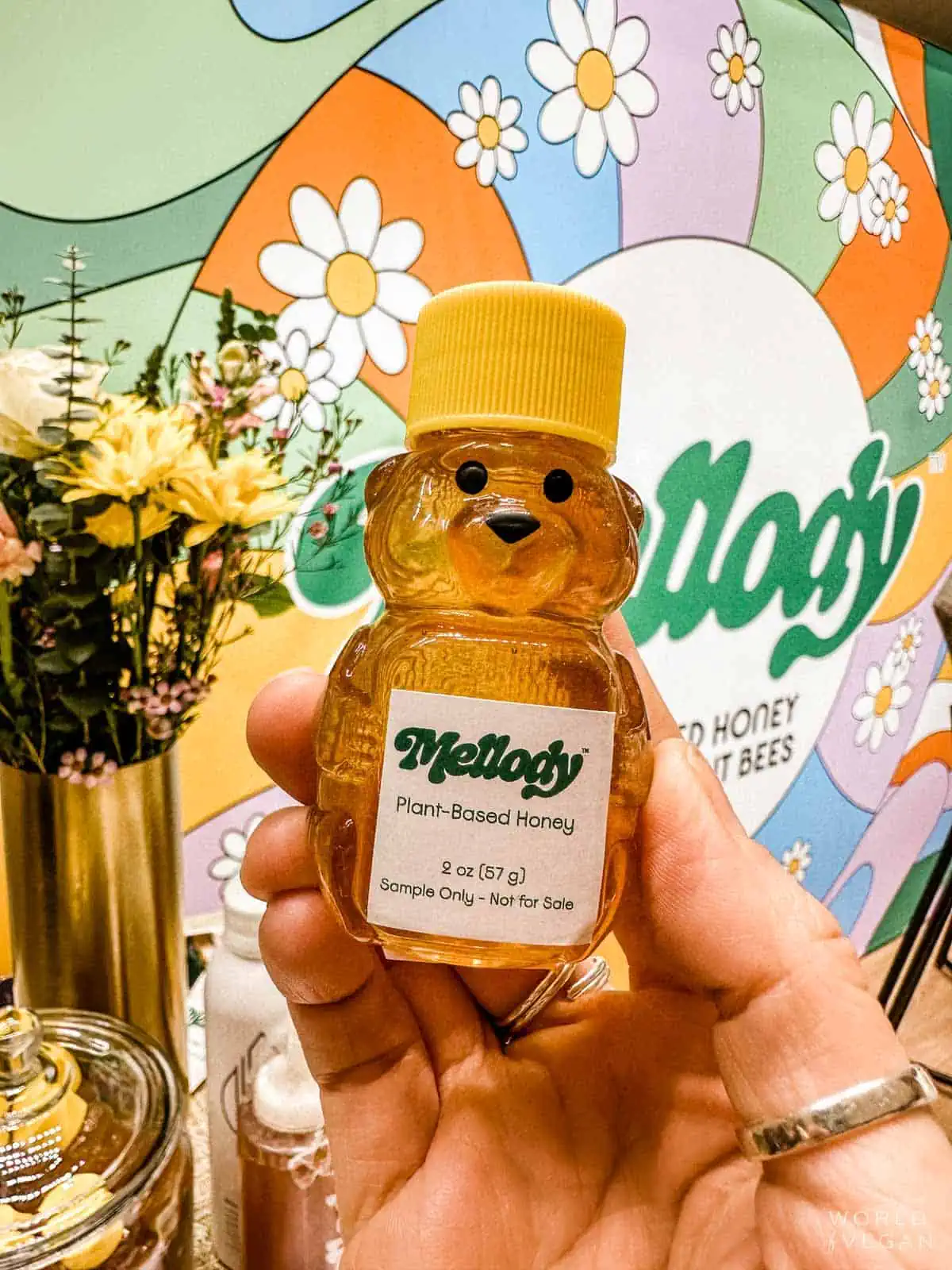
- Pyure Harmless Hunny
- Suzzane’s Specialties Just Like Honey
- The Single Origin Food Co Vegan Un-Honey
- Vegan Honey Company
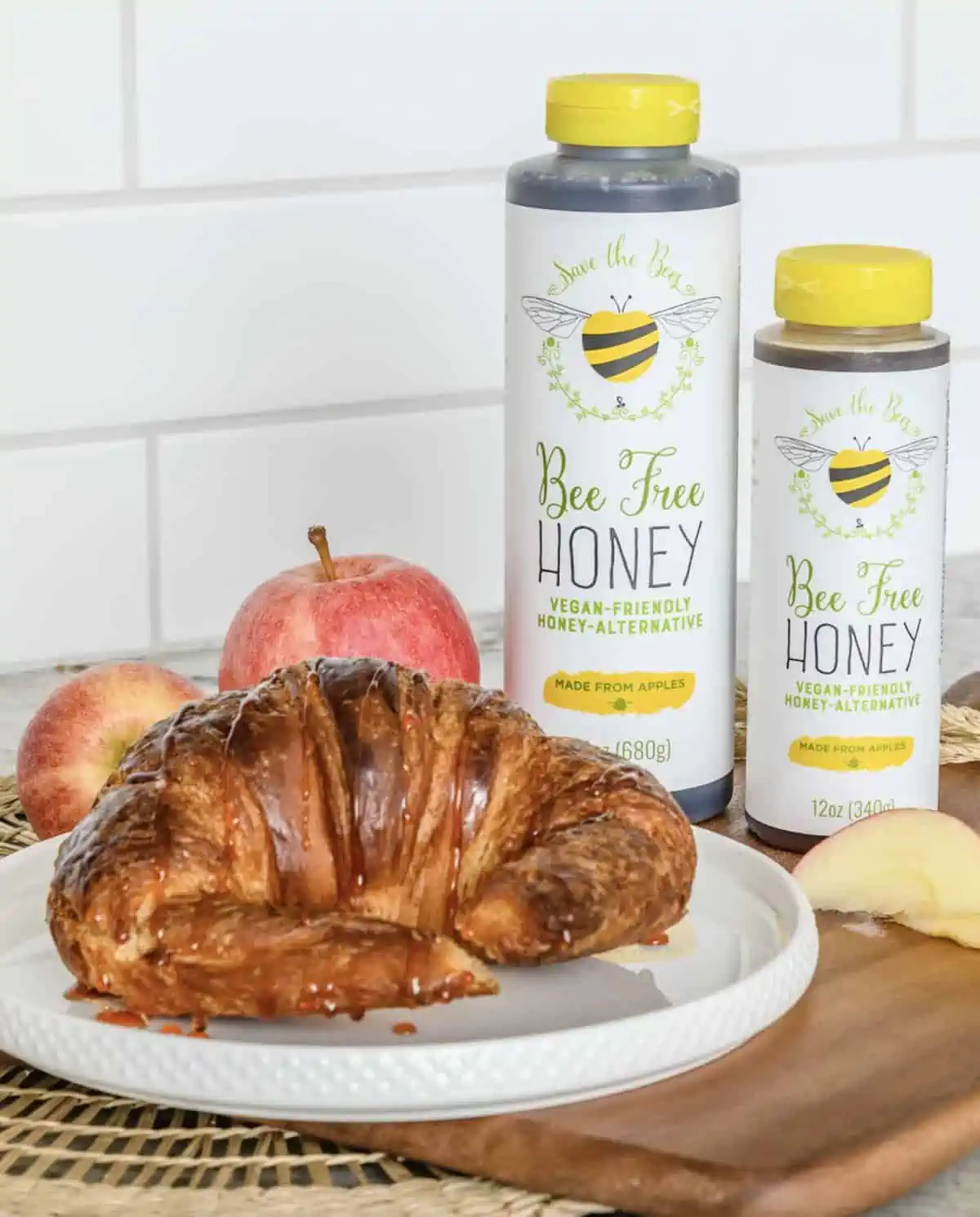
Isn’t Honey A Healthy Superfood, Though? I Want Those Health Benefits!
Honey does have some beneficial properties, but that doesn’t mean you have to eat it. In fact, it may be better to pass on the honeybee honey. You can reach for any number of other plant-based superfoods instead.
Honey has more antioxidants than cane sugar, but it’s still incredibly high in glucose, which is particularly detrimental to diabetics.
Honey is also very calorie-dense, and can contribute to weight gain just like any other sweetener.
You can find similar attributes in maple syrup if you want a natural, whole foods option. Also, don’t forget, being vegan doesn’t always mean being healthy. Oreo cookies and French fries are vegan, after all!
Ways to Help Save The Honeybees
Colony collapse disorder is a serious problem facing honeybee hives across the world. This is when worker bees suddenly disappear, leaving the queen and immature baby bees behind, ultimately destroying the colony.
If you want to help the cause, buying honey is NOT the answer! There are many more effective approaches to make a positive difference.
1. Plant bee-friendly flowers
Create your own open air bee buffet with gorgeous blooms! It doesn’t have to be something big; window boxes, flowerpots, living walls, and planters all offer vital space to grow pollinator-friendly flowers.
2. Dump pesticides
These chemicals can’t differentiate between harmful pests and welcome guests. Besides, you’re essentially poisoning your own food if you’re using pesticides to grow fruits or vegetables.
3. Stay away from hives
This should go without saying, but if you see a hive, don’t poke at it, swat at it, or try to get it down. Likewise, leave bees alone if you see them while picnicking or enjoying the great outdoors. They live here too! You won’t get stung if they don’t feel threatened.
4. Oh honey, don’t bother the bees!
You’re already sweet enough as it is. Honey is not vegan and is easily replaced with a wide range of plant-based alternatives.
Make Your Own Vegan Honey From Scratch
If you’d like to take the DIY approach, there are plenty of vegan honey recipes recipes for making your own plant-based honey from scratch.
- Dandelion Honey, Anyone? This vegan honey recipe uses dandelions to get that authentic floral flavor.
- This Apple Honey starts with whole apples and lemon juice in a very, accessible approach.
- Namely Marly uses agave and chamomile tea to make a syrupy sweet vegan honey.

Vegan Honey (Made From Apples)
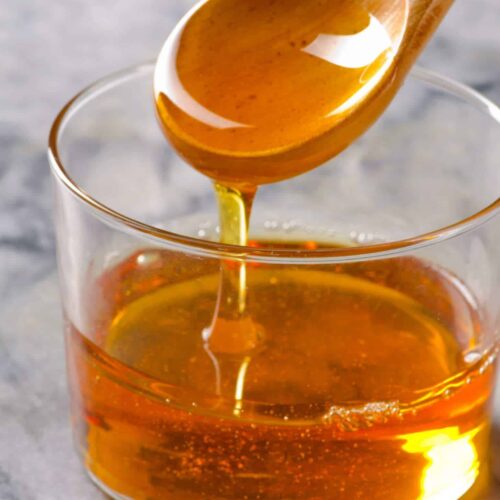
Equipment
Ingredients
- 2 cups apple juice, extra points if you make your own fresh apple juice with a juicer!
- 1 cup granulated sugar
- 1 teaspoon lemon juice
Instructions
- In a small saucepan over high heat, pour in the apple juice, granulated sugar, and lemon juice, and allow to come to a boil uncovered.
- Once boiling, reduce to medium heat and allow to simmer uncovered for about 30 minutes, stirring every minute or two until it transforms from a liquid, to a syrup, to honey consistency.
- Remove from heat and allow to cool completely. The vegan honey will be very hot, so take care not to touch it until it cools. Pour the apple honey into a clean glass mason jar, and once it's at room temperature, store in the refrigerator.
Notes
Nutrition
Could Avoiding Honey Be Doing More Harm Than Good?
Okay, so honey isn’t technically vegan, and there are certainly issues in mass production of honey. But is avoiding honey actually going to make a net-positive impact on our world? Are the alternatives any better?
This article by Dr. Michael Greger brings up the solid point that honey harvesting may actually harm fewer insects than other sweeteners (unless you buy exclusively organic). Dr. Greger reminds us that pesticides used in farming produce are specifically designed to kill insects. He argues that by policing the use of honey vegans may be making ourselves appear more fringe, extreme, and un-relatable than ever to the general public, which could in turn cause fewer people to become vegan.
Another longtime vegan, The Better Meat Co. founder Paul Shapiro, says:
“I agree that commercial honey production methods can be quite tough on bees. But I do suspect that honey production likely causes less animal suffering than the production of some other types of sweeteners such as cane sugar. That’s not to say that honey is great, but if the concern is about causing the least animal suffering via our food choices, it seems probable to me that honey does less harm than at least some common plant-based sweeteners.”
—Paul Shapiro, author of Clean Meat
Do Some Vegans Eat Honey?
It’s worth considering that being an “imperfect vegan” is likely going to inspire far more people to give vegan a try than being a “vegan police.” As a result, nit-picking about honey may actually cause more harm to animals than taking a more flexile and bigger picture approach. But it’s impossible to know for sure.
What we do know is that there are infinite approaches to vegan living.
- Some vegans draw a hard line at honey, and avoid it to the same degree that they avoid meat, dairy, and eggs.
- There are many people who identify as vegan, but they do eat honey. Essentially, they are vegan except for honey.
- There are some vegans who don’t buy honey themselves, but if there is honey in something served or offered to them, they graciously accept and enjoy it.
- Some vegans are even beekeepers themselves!
Ultimately, there is no one right or wrong approach, and the choice about how you handle animal ingredients sneaking into your food is yours. Just empower yourself with knowledge about the issue so you can make the choice that is truly aligned with your ethical framework.
There Is No One “Right” Approach to Honey
As you can see, this topic is very complex and there is no single “correct” answer to the honey debate. But regardless of where you stand on the issue, one thing is certain. There is a plethora of vegan honey alternatives that taste just as good as honey. So leaving the honey for the bees as nature intended is not that hard.

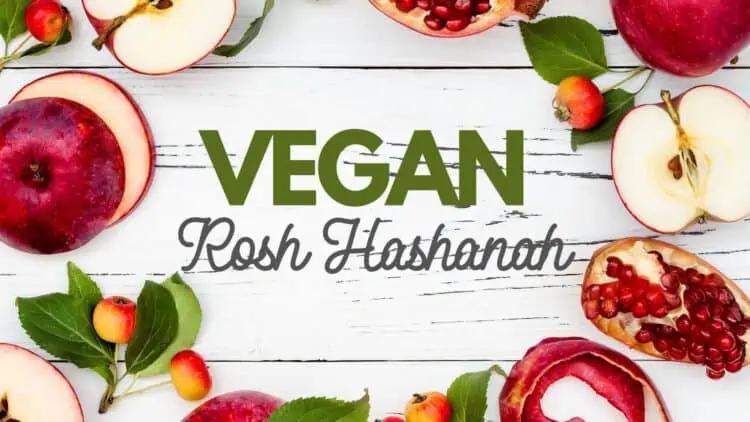
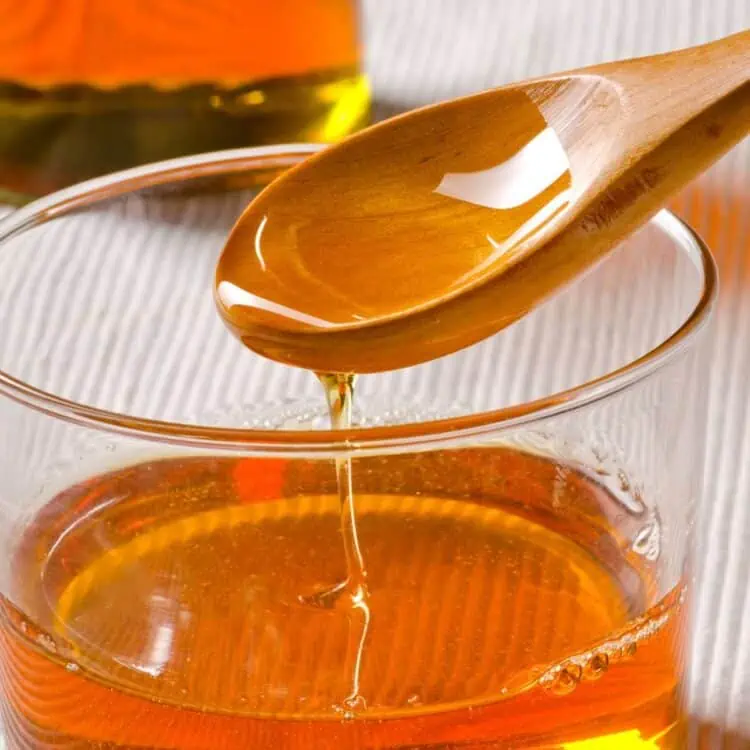
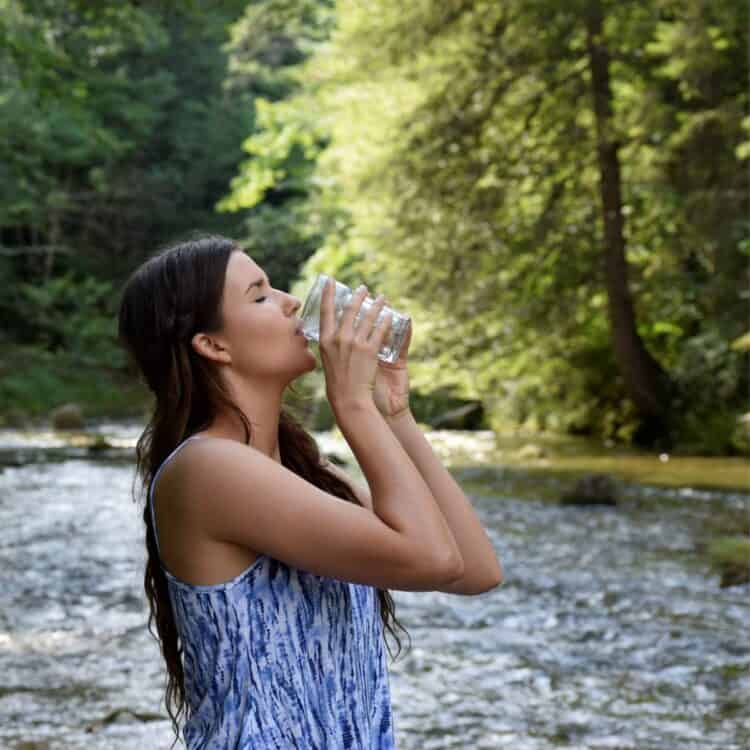
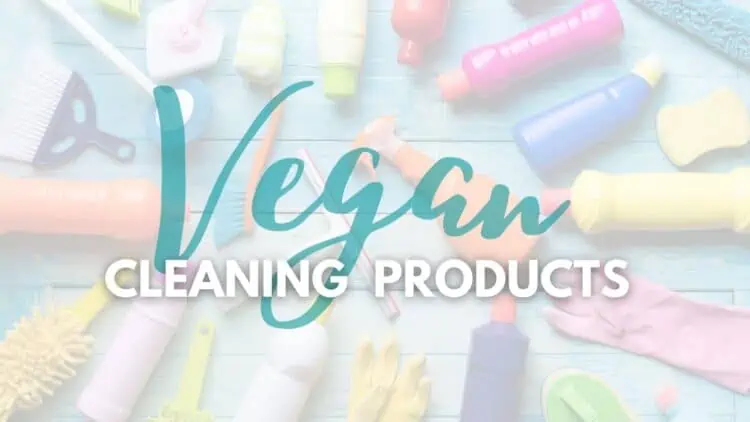
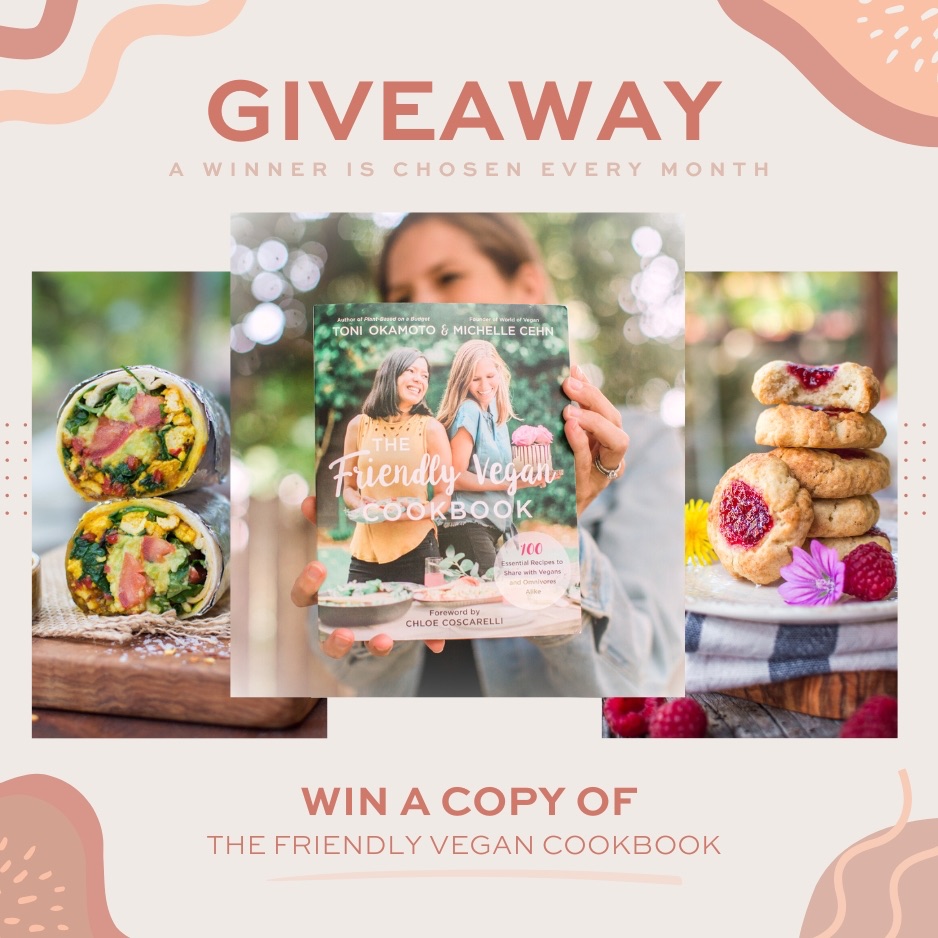
Leave a Comment
I love agave as a substitute, but didn’t know it’s possible to make honey out of apples interesting
Yay for vegan honey alternatives!
Oh, I have never thought of making my own honey, now I am going to have to try this vegan honey recipe. Thanks for explaining how honey is produced. Will have to share with those who ask me why honey isn’t vegan!
Very eye-opening post! Thank you!
I doubled the recipe, but it’s been simmering for 90 minutes now, and isn’t thickening at all. I used apple juice from concentrate. Could that be why?
Hi Matthew, the larger the batch, the longer it will take, but 90 minutes does seem long. We haven’t tried this recipe with apple juice from concentrate so not sure how that would affect the results. I would make sure that you’re simmering uncovered and turn up the heat slightly to help speed up the process. Hope this helps!
Love this post! It’s so informative about why honey is technically not vegan without being judgmental. I find so many people to be super judgmental in the vegan community, so this was super refreshing!!
Lots of good information here and I’m happy to now have an easy recipe for making my own bee-free honey!
What a thoughtful post. My cousin who ate only plant based food for many years didn’t feel he was a proper vegan until he gave up leather shoes. It’s a bit of a minefield. I’ve not come across apple honey before, but I make dandelion honey. Your version is a lot easier.
I am in absolute AWE that you can make your own vegan honey from apples! So crazy, and cool, and fun!
This vegan honey is so delicious! My new favorite sweetener!
Such a helpful guide!
So glad to hear it! Isn’t it great that there are yummy alternatives to choose from?
This is such a great guide. Love maple syrup as a honey sub!
Thank you! Knowing there are delicious alternatives to honey is so helpful.
So many people always ask me about honey and whether it is vegan or not. I love having this resource on hand to either check or share with others. Thank you!
Honey is such a hot topic in the vegan world! Love this helpful guide!
Great! So glad you found it helpful, Amanda!
such a great guide! will send this over to friends for the helpful words of wisdom!
nice and helpful guide
This is a really helpful guide!